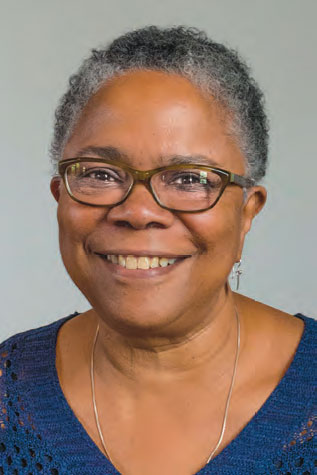Pulteney Street SurveySpring 2020

Making Community Connections
by Bethany Snyder
Community development is a foundational component of a resilient, diverse and vibrant society. Strategic solutions for enhancing communities happen when the right people and resources come together. D-L Casson '70 has dedicated her life to making those connections happen.
In her sophomore year, Diane-Louise "D-L" Kenney Casson '70 realized she was one of just a few black women at William Smith. "I wanted to figure out what to do about it," says Casson. So she went straight to the top.
A conversation with then-President Albert Holland led Casson to volunteer in Admissions, first as a campus tour guide and then, during her senior year, traveling with staff to outreach programs and college fairs in New York City. Her conversation with Holland was the beginning of a life spent identifying problems, finding solutions and connecting community resources.
Casson spent much of her career working in higher education, holding administrative posts at Stanford University, Mary Washington College, Fisk University and Atlanta University. It was a relocation to Pennsylvania - where she worked for many years at the University of Pennsylvania - that eventually led to one of the most rewarding experiences of her career.
In 2009, the nonprofit Public Health Management Corporation received a grant from the Kellogg Foundation to fund the Philadelphia Urban Food & Fitness Alliance, designed to increase access to healthy food and safe places for physical fitness for young people. Casson was brought on as project director.
"One of our goals was to teach high school students how to advocate for improved food in their schools," she says. Many of the communities with the greatest need exist in food deserts with no access to fresh fruits and vegetables or food that isn't highly processed. "We wanted to not only improve health outcomes for young people, but give them the skills they needed to make positive change for themselves." Approximately 60 students from African-American and Cambodian communities took part in the program.
Along with nutrition and food preparation skills, the students learned how food was brought into their schools, primarily through commodities from the government. Some schools didn't even have full kitchens. Casson and her team connected the students with nutritionists and provided tastings. The students then presented the information they'd gathered back to the schools, teaching the kitchen staff how to prepare food so that kids would eat it and not waste it. "One of their mottos was, 'if you roast it, we'll eat it,'" Casson says. "I mean, who wants to eat a soggy vegetable?"
Throughout the project - which culminated in a capstone Chopped competition, in the style of the popular Food Network show - Casson was particularly struck by the rapport being built between students.
"I knew something good had happened when I saw an African-American girl teaching Vietnamese and Cambodian youth how to make egg rolls," she says. The African-American girl lived down the street from the grandmothers of the other students, and while those kids weren't interested in hanging out with their grandmothers, the African-American girl was. The older women taught her the art of making egg rolls, and she in turn taught her peers. "I'll never forget that night," says Casson. "It was a slam dunk: we won."
Creating connections that foster change is what inspires Casson every day. In her retirement, she works as the parish administrator at the Episcopal Church of Saints Andrew and Matthew in Wilmington, Del., connecting parishioners and community members with services they need, from a cup of coffee to a dollar to get their prescription filled.
For Casson, it's all part of building strong, supportive communities. "Without community development, things fall apart," she says. "It's the connective tissue of our society."
